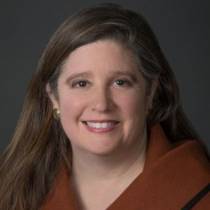
Kristi Walters is Director of the Endowment's Higher Education program area
One of the cornerstones of The Duke Endowment’s enduring vision is its steadfast commitment to higher education. Our founder James B. Duke believed education could significantly shape the future of the Carolinas, noting that next to religion, education was “the greatest civilizing influence” in society. For the past 100 years, the Endowment has partnered with Davidson College, Duke University, Furman University and Johnson C. Smith University, the four schools named in Mr. Duke’s Indenture of Trust, with a goal of advancing high-value education for all students.
As we mark our centennial, we reflect on the impact of our long-standing partnerships with each institution, continued collaboration and lessons learned that advance the field of higher education.
Supporting Institutional Priorities
Because Mr. Duke specifically named the four institutions as grantees a century ago, the Endowment’s funding approach in higher education is unique and is grounded in deep partnership. We consider leaders from the four designated schools to be the experts in their own academic communities. Instead of delegating any predetermined priorities, we consult closely and regularly with school leaders about their challenges and opportunities. From this posture of deep listening, we jointly determine the selected priorities and projects we will support on each campus.
These opportunities include providing financial support and enhancing access and the academic experience for students, supporting faculty recruitment and development and endowing professorships and scholarships. We also make capital investments in campus buildings and infrastructure and provide general operating support. Many resulting initiatives — and their subsequent outcomes — have proven to be effective, innovative and, in some cases, highly collaborative, such as our help to recruit, retain and develop faculty across and among the four schools. Some key insights continue to drive our approach in support of this work.
- Supporting faculty ultimately benefits students. By offering competitive compensation to professors and other instructors who are passionate about teaching, the educational experience is enriched.
- The best teachers remain students throughout their lives and careers. Leadership and other development opportunities have an impact on faculty as teachers, researchers and leaders on campus.
Over the past 20 years, the Endowment has awarded more than $200 million to the four higher education institutions to hire faculty, keep salaries competitive, attract experts and develop faculty leaders – ensuring that students are learning from world-class teachers.
Pursuing Shared Opportunities
Increasingly, the Endowment’s impact is enhanced when priorities from each school coalesce around one distinct need. The Student Resilience and Well-Being Project was a five-year initiative prompted by concerns among all four Endowment-supported schools about student mental health and well-being.
Conversations among student affairs leaders for all four schools in the spring of 2012 led to a diverse representation a year later of psychology research faculty and practitioner staff from academic affairs and student life. This dialogue ultimately shaped the project, which launched in 2014 and followed the class of 2018 from orientation through graduation, with a final year dedicated to data analysis.
Data was collected across all four schools to better understand the causes of student stress, how it manifests, what tools students possess to cope, and where interventions to improve resiliency are most needed. Campus teams then utilized the data to design and implement new interventions.
According to educators at the colleges, the resilience project strengthened the bonds between academic affairs and student life by bringing the two sides together to work in ways that they never had. The project required each school not only to pilot new programs and interventions, but also to study and assess those interventions and share data.
Furman, for example, used the resilience project to inform the development of The Furman Advantage, a program combining classroom learning with real-world experiences and self-discovery. The foundation of The Furman Advantage is the Pathways Program, a required, two-year advising course for which students receive academic credit that resulted in a 3 percent increase in first-year to sophomore retention, with a 6 percent increase in first-year to sophomore retention among first generation students, and an 11 percent increase in first-year to sophomore retention in students of color.
The Way Ahead
As we head into our next century of grantmaking, I am optimistic that we will continue to see collaborative grantmaking initiatives among the four Endowment-supported schools. And, we will continue to approach the next century with the knowledge that through listening and supporting the unique priorities of the four institutions Mr. Duke named in his Indenture of Trust, we will advance high-value education for students in the Carolinas and beyond.
Centennial Videos:
Duke University: A Century of Shared Vision #DukeEndowment100 #Committed2Carolinas
An Enduring Commitment: Furman University and The Duke Endowment





